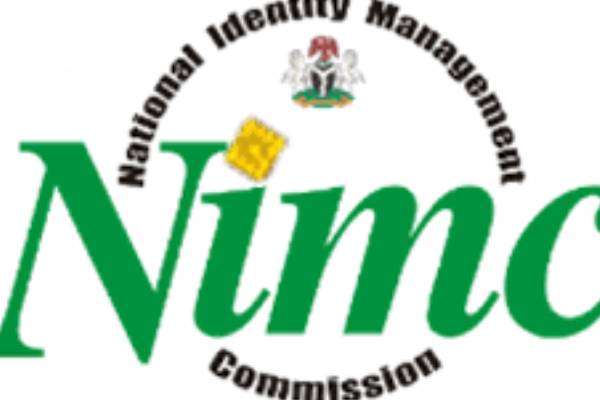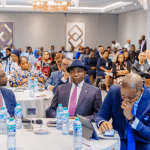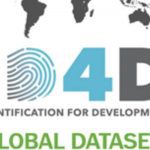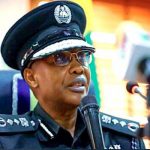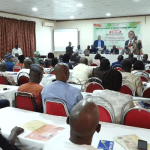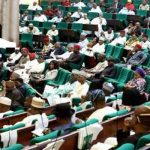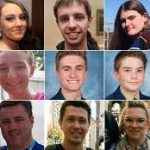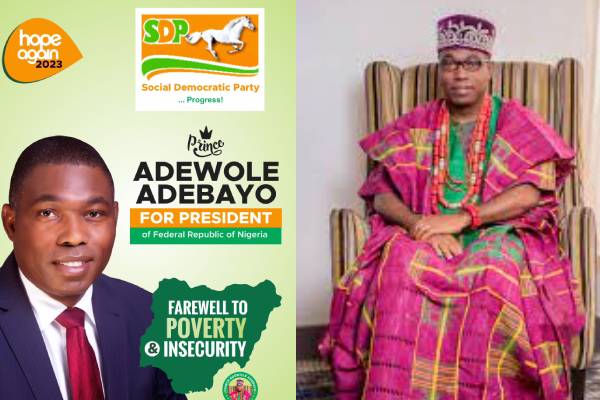The Nigeria Digital Identification for development project has organized a 2-day stakeholders engagement workshop in order to establish an inclusive enrollment system and effective feedback mechanism for the digital identification project.
This workshop will identify barriers to women, girls and marginalized groups and also create a disability-inclusive identification system, with exceptional handling for people with disabilities.
An estimated one billion people globally lack government-recognized proof of identity
Nigeria’s existing foundational ID systems, including the national ID and civil registration (CRI systems, suffer from low coverage across the population.
Only 32 per cent of individuals have a National Identification Number (NIN), while 43 per cent of new births are registered in the Civil Registry.
The gap identification coverage disproportionately affects women and other marginalized and vulnerable groups.
There is a need to foster inclusion to ensure every Nigerian citizen both at home and in the diaspora obtains their NIN.
This two-day stakeholders’ workshop is to develop strategies to facilitate enrollment in hard-to-reach areas.
It will also identify the challenges and opportunities for enrolling babies and school children.
This project is being carried out under the supervision of the National identification management commission.
The engagement will also create an inclusive grievance redress mechanism for the identification system.
Some Nigeria had taken to social media to register their displeasure over being charged to pay to get their NIN by the agents at the different registration centres.
NIMC the umbrella body had stated that registration for NIN is free and no person should be forced to pay any fee.
Digital identification according to experts is the way to go to ensure proper identification of individuals, ensure adequate and effective planning for development as it will show the nations’ demographics clearly.
While experts and observers have always backed the Federal; Government’s decision to have a National Identification Card, Number or platform, many are still of the Opinion that the disparate and different platforms that have been used to collect Data from the Nigerians like the BVN, Drivers Licence, the Voters Card and Others should be merged to produce a single, distinct document that will cater to all these needs.
The Nigeria Digital Identification for development project has organized a 2-day stakeholders engagement workshop in order to establish an inclusive enrollment system and effective feedback mechanism for the digital identification project.
This workshop will identify barriers to women, girls and marginalized groups and also create a disability-inclusive identification system, with exceptional handling for people with disabilities.
An estimated one billion people globally lack government-recognized proof of identity
Nigeria’s existing foundational ID systems, including the national ID and civil registration (CRI systems, suffer from low coverage across the population.
Only 32 per cent of individuals have a National Identification Number (NIN), while 43 per cent of new births are registered in the Civil Registry.
The gap identification coverage disproportionately affects women and other marginalized and vulnerable groups.
There is a need to foster inclusion to ensure every Nigerian citizen both at home and in the diaspora obtains their NIN.
This two-day stakeholders’ workshop is to develop strategies to facilitate enrollment in hard-to-reach areas.
It will also identify the challenges and opportunities for enrolling babies and school children.
This project is being carried out under the supervision of the National identification management commission.
The engagement will also create an inclusive grievance redress mechanism for the identification system.
Some Nigeria had taken to social media to register their displeasure over being charged to pay to get their NIN by the agents at the different registration centres.
NIMC the umbrella body had stated that registration for NIN is free and no person should be forced to pay any fee.
Digital identification according to experts is the way to go to ensure proper identification of individuals, ensure adequate and effective planning for development as it will show the nations’ demographics clearly.
While experts and observers have always backed the Federal; Government’s decision to have a National Identification Card, Number or platform, many are still of the Opinion that the disparate and different platforms that have been used to collect Data from the Nigerians like the BVN, Drivers Licence, the Voters Card and Others should be merged to produce a single, distinct document that will cater to all these needs.
The Nigeria Digital Identification for development project has organized a 2-day stakeholders engagement workshop in order to establish an inclusive enrollment system and effective feedback mechanism for the digital identification project.
This workshop will identify barriers to women, girls and marginalized groups and also create a disability-inclusive identification system, with exceptional handling for people with disabilities.
An estimated one billion people globally lack government-recognized proof of identity
Nigeria’s existing foundational ID systems, including the national ID and civil registration (CRI systems, suffer from low coverage across the population.
Only 32 per cent of individuals have a National Identification Number (NIN), while 43 per cent of new births are registered in the Civil Registry.
The gap identification coverage disproportionately affects women and other marginalized and vulnerable groups.
There is a need to foster inclusion to ensure every Nigerian citizen both at home and in the diaspora obtains their NIN.
This two-day stakeholders’ workshop is to develop strategies to facilitate enrollment in hard-to-reach areas.
It will also identify the challenges and opportunities for enrolling babies and school children.
This project is being carried out under the supervision of the National identification management commission.
The engagement will also create an inclusive grievance redress mechanism for the identification system.
Some Nigeria had taken to social media to register their displeasure over being charged to pay to get their NIN by the agents at the different registration centres.
NIMC the umbrella body had stated that registration for NIN is free and no person should be forced to pay any fee.
Digital identification according to experts is the way to go to ensure proper identification of individuals, ensure adequate and effective planning for development as it will show the nations’ demographics clearly.
While experts and observers have always backed the Federal; Government’s decision to have a National Identification Card, Number or platform, many are still of the Opinion that the disparate and different platforms that have been used to collect Data from the Nigerians like the BVN, Drivers Licence, the Voters Card and Others should be merged to produce a single, distinct document that will cater to all these needs.
The Nigeria Digital Identification for development project has organized a 2-day stakeholders engagement workshop in order to establish an inclusive enrollment system and effective feedback mechanism for the digital identification project.
This workshop will identify barriers to women, girls and marginalized groups and also create a disability-inclusive identification system, with exceptional handling for people with disabilities.
An estimated one billion people globally lack government-recognized proof of identity
Nigeria’s existing foundational ID systems, including the national ID and civil registration (CRI systems, suffer from low coverage across the population.
Only 32 per cent of individuals have a National Identification Number (NIN), while 43 per cent of new births are registered in the Civil Registry.
The gap identification coverage disproportionately affects women and other marginalized and vulnerable groups.
There is a need to foster inclusion to ensure every Nigerian citizen both at home and in the diaspora obtains their NIN.
This two-day stakeholders’ workshop is to develop strategies to facilitate enrollment in hard-to-reach areas.
It will also identify the challenges and opportunities for enrolling babies and school children.
This project is being carried out under the supervision of the National identification management commission.
The engagement will also create an inclusive grievance redress mechanism for the identification system.
Some Nigeria had taken to social media to register their displeasure over being charged to pay to get their NIN by the agents at the different registration centres.
NIMC the umbrella body had stated that registration for NIN is free and no person should be forced to pay any fee.
Digital identification according to experts is the way to go to ensure proper identification of individuals, ensure adequate and effective planning for development as it will show the nations’ demographics clearly.
While experts and observers have always backed the Federal; Government’s decision to have a National Identification Card, Number or platform, many are still of the Opinion that the disparate and different platforms that have been used to collect Data from the Nigerians like the BVN, Drivers Licence, the Voters Card and Others should be merged to produce a single, distinct document that will cater to all these needs.
The Nigeria Digital Identification for development project has organized a 2-day stakeholders engagement workshop in order to establish an inclusive enrollment system and effective feedback mechanism for the digital identification project.
This workshop will identify barriers to women, girls and marginalized groups and also create a disability-inclusive identification system, with exceptional handling for people with disabilities.
An estimated one billion people globally lack government-recognized proof of identity
Nigeria’s existing foundational ID systems, including the national ID and civil registration (CRI systems, suffer from low coverage across the population.
Only 32 per cent of individuals have a National Identification Number (NIN), while 43 per cent of new births are registered in the Civil Registry.
The gap identification coverage disproportionately affects women and other marginalized and vulnerable groups.
There is a need to foster inclusion to ensure every Nigerian citizen both at home and in the diaspora obtains their NIN.
This two-day stakeholders’ workshop is to develop strategies to facilitate enrollment in hard-to-reach areas.
It will also identify the challenges and opportunities for enrolling babies and school children.
This project is being carried out under the supervision of the National identification management commission.
The engagement will also create an inclusive grievance redress mechanism for the identification system.
Some Nigeria had taken to social media to register their displeasure over being charged to pay to get their NIN by the agents at the different registration centres.
NIMC the umbrella body had stated that registration for NIN is free and no person should be forced to pay any fee.
Digital identification according to experts is the way to go to ensure proper identification of individuals, ensure adequate and effective planning for development as it will show the nations’ demographics clearly.
While experts and observers have always backed the Federal; Government’s decision to have a National Identification Card, Number or platform, many are still of the Opinion that the disparate and different platforms that have been used to collect Data from the Nigerians like the BVN, Drivers Licence, the Voters Card and Others should be merged to produce a single, distinct document that will cater to all these needs.
The Nigeria Digital Identification for development project has organized a 2-day stakeholders engagement workshop in order to establish an inclusive enrollment system and effective feedback mechanism for the digital identification project.
This workshop will identify barriers to women, girls and marginalized groups and also create a disability-inclusive identification system, with exceptional handling for people with disabilities.
An estimated one billion people globally lack government-recognized proof of identity
Nigeria’s existing foundational ID systems, including the national ID and civil registration (CRI systems, suffer from low coverage across the population.
Only 32 per cent of individuals have a National Identification Number (NIN), while 43 per cent of new births are registered in the Civil Registry.
The gap identification coverage disproportionately affects women and other marginalized and vulnerable groups.
There is a need to foster inclusion to ensure every Nigerian citizen both at home and in the diaspora obtains their NIN.
This two-day stakeholders’ workshop is to develop strategies to facilitate enrollment in hard-to-reach areas.
It will also identify the challenges and opportunities for enrolling babies and school children.
This project is being carried out under the supervision of the National identification management commission.
The engagement will also create an inclusive grievance redress mechanism for the identification system.
Some Nigeria had taken to social media to register their displeasure over being charged to pay to get their NIN by the agents at the different registration centres.
NIMC the umbrella body had stated that registration for NIN is free and no person should be forced to pay any fee.
Digital identification according to experts is the way to go to ensure proper identification of individuals, ensure adequate and effective planning for development as it will show the nations’ demographics clearly.
While experts and observers have always backed the Federal; Government’s decision to have a National Identification Card, Number or platform, many are still of the Opinion that the disparate and different platforms that have been used to collect Data from the Nigerians like the BVN, Drivers Licence, the Voters Card and Others should be merged to produce a single, distinct document that will cater to all these needs.
The Nigeria Digital Identification for development project has organized a 2-day stakeholders engagement workshop in order to establish an inclusive enrollment system and effective feedback mechanism for the digital identification project.
This workshop will identify barriers to women, girls and marginalized groups and also create a disability-inclusive identification system, with exceptional handling for people with disabilities.
An estimated one billion people globally lack government-recognized proof of identity
Nigeria’s existing foundational ID systems, including the national ID and civil registration (CRI systems, suffer from low coverage across the population.
Only 32 per cent of individuals have a National Identification Number (NIN), while 43 per cent of new births are registered in the Civil Registry.
The gap identification coverage disproportionately affects women and other marginalized and vulnerable groups.
There is a need to foster inclusion to ensure every Nigerian citizen both at home and in the diaspora obtains their NIN.
This two-day stakeholders’ workshop is to develop strategies to facilitate enrollment in hard-to-reach areas.
It will also identify the challenges and opportunities for enrolling babies and school children.
This project is being carried out under the supervision of the National identification management commission.
The engagement will also create an inclusive grievance redress mechanism for the identification system.
Some Nigeria had taken to social media to register their displeasure over being charged to pay to get their NIN by the agents at the different registration centres.
NIMC the umbrella body had stated that registration for NIN is free and no person should be forced to pay any fee.
Digital identification according to experts is the way to go to ensure proper identification of individuals, ensure adequate and effective planning for development as it will show the nations’ demographics clearly.
While experts and observers have always backed the Federal; Government’s decision to have a National Identification Card, Number or platform, many are still of the Opinion that the disparate and different platforms that have been used to collect Data from the Nigerians like the BVN, Drivers Licence, the Voters Card and Others should be merged to produce a single, distinct document that will cater to all these needs.
The Nigeria Digital Identification for development project has organized a 2-day stakeholders engagement workshop in order to establish an inclusive enrollment system and effective feedback mechanism for the digital identification project.
This workshop will identify barriers to women, girls and marginalized groups and also create a disability-inclusive identification system, with exceptional handling for people with disabilities.
An estimated one billion people globally lack government-recognized proof of identity
Nigeria’s existing foundational ID systems, including the national ID and civil registration (CRI systems, suffer from low coverage across the population.
Only 32 per cent of individuals have a National Identification Number (NIN), while 43 per cent of new births are registered in the Civil Registry.
The gap identification coverage disproportionately affects women and other marginalized and vulnerable groups.
There is a need to foster inclusion to ensure every Nigerian citizen both at home and in the diaspora obtains their NIN.
This two-day stakeholders’ workshop is to develop strategies to facilitate enrollment in hard-to-reach areas.
It will also identify the challenges and opportunities for enrolling babies and school children.
This project is being carried out under the supervision of the National identification management commission.
The engagement will also create an inclusive grievance redress mechanism for the identification system.
Some Nigeria had taken to social media to register their displeasure over being charged to pay to get their NIN by the agents at the different registration centres.
NIMC the umbrella body had stated that registration for NIN is free and no person should be forced to pay any fee.
Digital identification according to experts is the way to go to ensure proper identification of individuals, ensure adequate and effective planning for development as it will show the nations’ demographics clearly.
While experts and observers have always backed the Federal; Government’s decision to have a National Identification Card, Number or platform, many are still of the Opinion that the disparate and different platforms that have been used to collect Data from the Nigerians like the BVN, Drivers Licence, the Voters Card and Others should be merged to produce a single, distinct document that will cater to all these needs.

